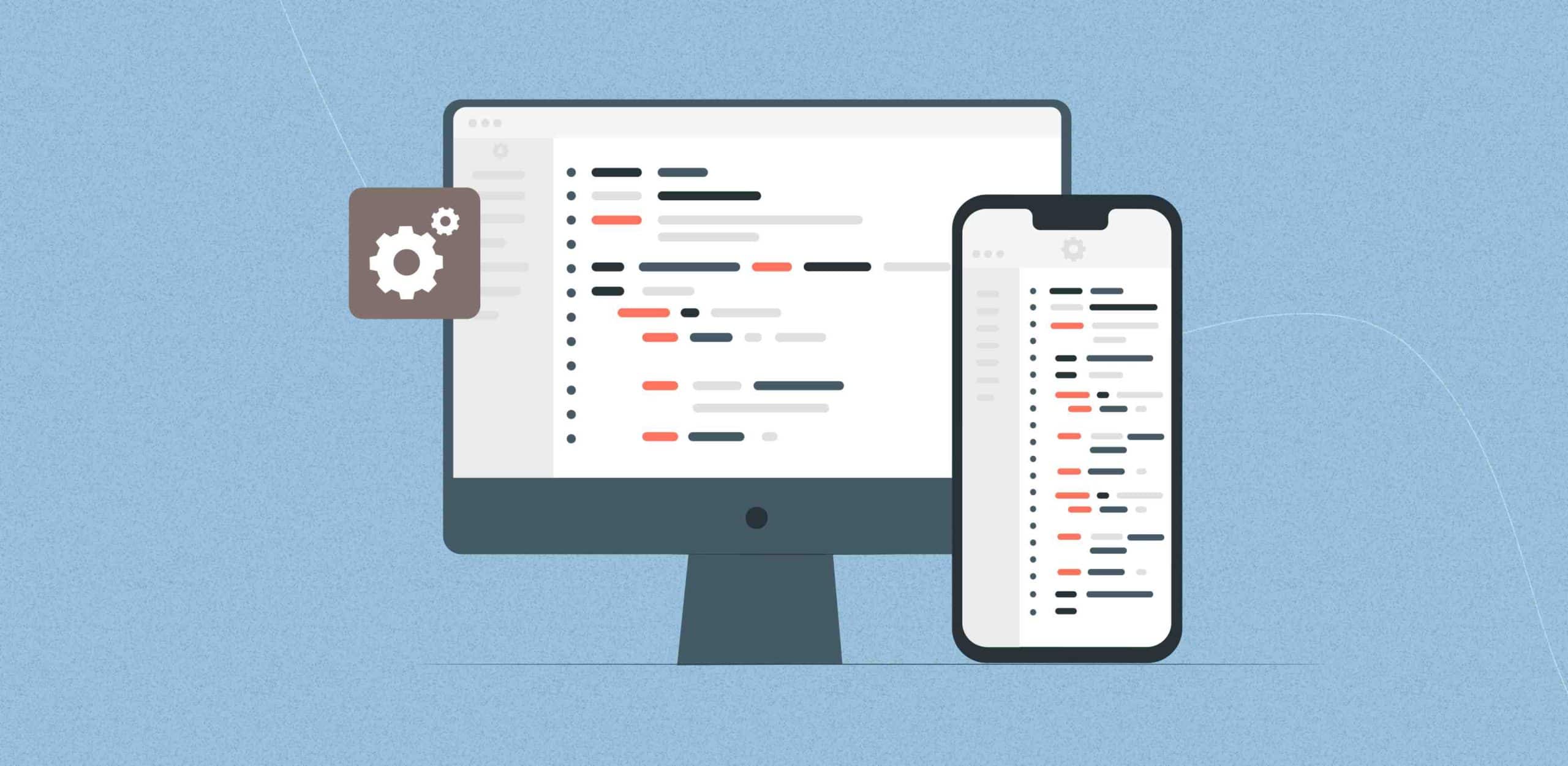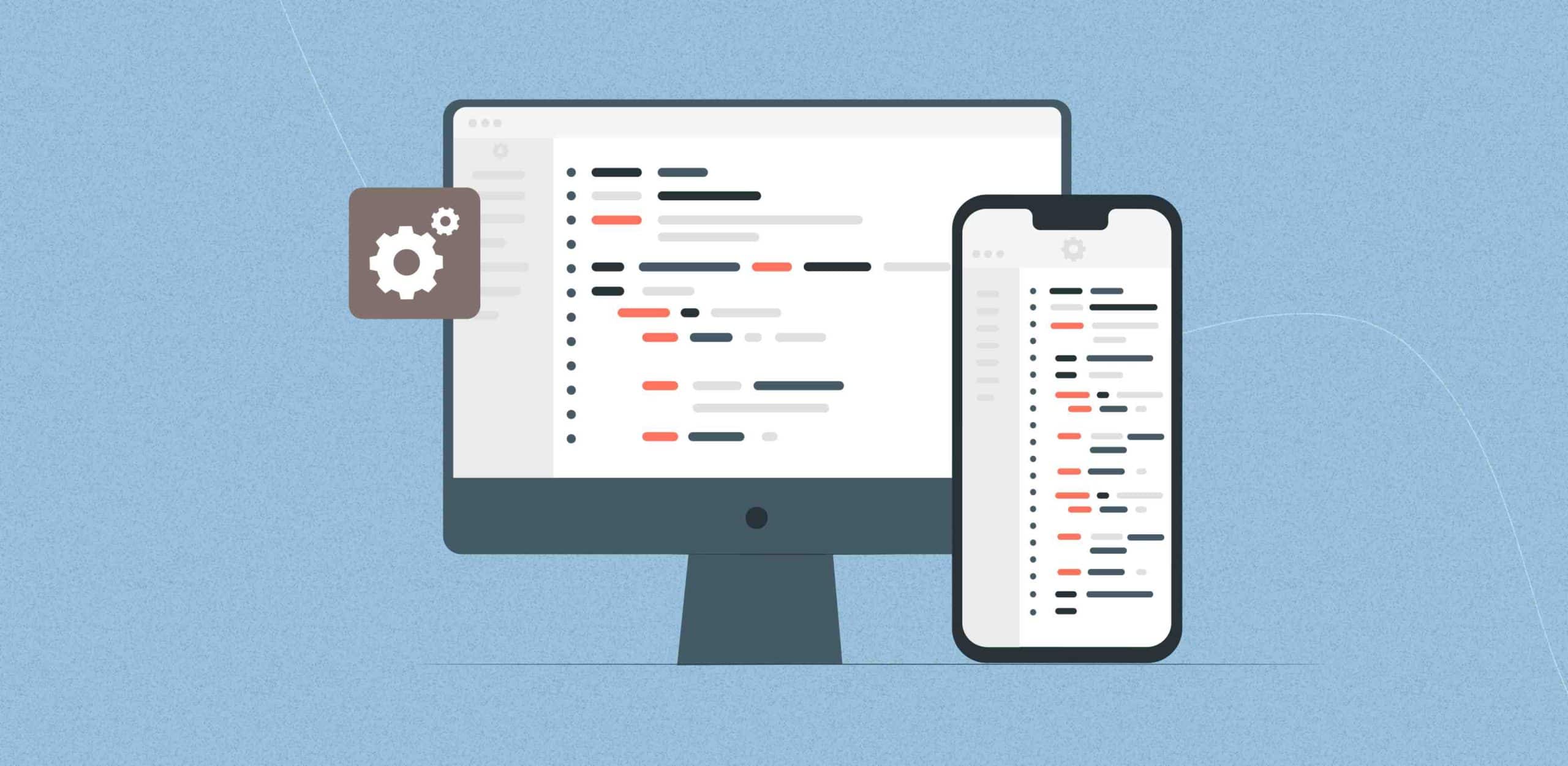Artificial Intelligence (AI) is revolutionizing how businesses operate and compete in the modern digital landscape. From streamlining operations to enhancing customer experiences, AI offers unparalleled opportunities for growth and efficiency. However, to fully leverage these opportunities, businesses must choose the right Artificial Intelligence development services.
This blog will guide you through understanding AI, the market landscape, AI services, their benefits, and how to select the best AI development company for your needs.
What is Artificial Intelligence?
Artificial Intelligence refers to the simulation of human intelligence in machines that are programmed to think, learn, and solve problems. These machines, often referred to as AI systems or agents, can perform tasks that typically require human intelligence, such as visual perception, speech recognition, decision-making, and language translation.
AI encompasses a variety of subfields, including machine learning, natural language processing, robotics, and computer vision. By harnessing these technologies, businesses can automate processes, gain insights from data, and deliver innovative solutions to their customers.
A Market Overview on Artificial Intelligence
The AI market has experienced exponential growth over the past decade. According to recent reports, the global AI market is expected to reach $190.61 billion by 2025, growing at a CAGR of 36.62% from 2018 to 2025. This growth is driven by advancements in AI technologies, increased adoption across industries, and the rising demand for intelligent solutions that can drive efficiency and innovation.
Sectors such as healthcare, finance, retail, and manufacturing are at the forefront of AI adoption. In healthcare, AI is used for diagnostic assistance and personalized treatment plans. In finance, AI enhances fraud detection and customer service. Retailers use AI for personalized marketing and inventory management, while manufacturers leverage AI for predictive maintenance and quality control.
What are Artificial Intelligence Services?
Artificial Intelligence services encompass a broad range of offerings that enable businesses to implement and benefit from AI technologies. These services include:
- AI Strategy and Consulting
AI Strategy and Consulting services involve assessing a company’s business needs and developing a tailored AI strategy to achieve specific goals. This service helps businesses identify potential AI applications, create a roadmap for AI integration, and ensure alignment with overall business objectives. By understanding the unique requirements and challenges of a business, AI consultants can provide expert guidance on the best AI technologies and practices to adopt. - Generative AI Development
Generative AI Development focuses on creating AI models that can generate new content, such as text, images, or music, based on existing data. This technology is used in applications like content creation, design, and creative industries. Generative AI can help businesses automate the creation of marketing materials, generate personalized content for customers, and develop new products. By harnessing generative AI, companies can enhance their creativity and innovation, producing unique and engaging content.
What are Artificial Intelligence Services?
Artificial Intelligence services encompass a broad range of offerings that enable businesses to implement and benefit from AI technologies. These services include:
- AI Strategy and Consulting
AI Strategy and Consulting services involve assessing a company’s business needs and developing a tailored AI strategy to achieve specific goals. This service helps businesses identify potential AI applications, create a roadmap for AI integration, and ensure alignment with overall business objectives. By understanding the unique requirements and challenges of a business, AI consultants can provide expert guidance on the best AI technologies and practices to adopt. - Generative AI Development
Generative AI Development focuses on creating AI models that can generate new content, such as text, images, or music, based on existing data. This technology is used in applications like content creation, design, and creative industries. Generative AI can help businesses automate the creation of marketing materials, generate personalized content for customers, and develop new products. By harnessing generative AI, companies can enhance their creativity and innovation, producing unique and engaging content. - ChatGPT Integration
ChatGPT Integration involves implementing advanced conversational AI models like ChatGPT into customer service, support systems, and other communication channels. ChatGPT can understand and respond to complex queries, providing human-like interactions with customers. This service helps businesses enhance their customer support capabilities, improve response times, and provide 24/7 assistance. By integrating ChatGPT, companies can deliver more personalized and efficient customer experiences. - Large Language Model Development
Large Language Model Development focuses on building and training large-scale AI models that can understand and generate human language. These models, such as GPT-3 and its successors, have vast knowledge and can perform a wide range of language-related tasks. Businesses can use large language models for content generation, translation, summarization, and more. By leveraging these models, companies can automate language-intensive processes and improve their communication strategies. - Enterprise AI Development
Enterprise AI Development involves creating and deploying Artificial Intelligence solutions tailored to the specific needs of large organizations. This service covers various AI applications, including predictive maintenance, supply chain optimization, customer analytics, and more. Enterprise AI solutions are designed to scale and integrate seamlessly with existing enterprise systems. By adopting enterprise AI, businesses can achieve greater efficiency, reduce operational costs, and drive innovation across the organization. - AI-enabled Video Analytics
AI-enabled Video Analytics uses AI technologies to analyze video footage in real-time or post-processing. This service is used in applications such as security surveillance, traffic monitoring, retail analytics, and more. AI video analytics can detect anomalies, track objects, and extract valuable insights from video data. By implementing AI-enabled video analytics, businesses can enhance their security measures, optimize operations, and gain actionable insights from video content. - Machine Learning Development
Machine Learning Development focuses on building models that can learn from data to make predictions or decisions. This involves training algorithms on historical data to recognize patterns and improve their performance over time. Businesses can use machine learning for various applications, such as predictive analytics, recommendation systems, fraud detection, and more. By leveraging machine learning, companies can gain valuable insights from their data and enhance their decision-making processes. - Natural Language Processing (NLP)
Natural Language Processing (NLP) enables machines to understand and respond to human language. This technology powers applications like chatbots, sentiment analysis, language translation, and voice recognition. NLP allows businesses to interact with customers more naturally and efficiently, providing better customer service and improving user experiences. By analyzing text and speech data, NLP can also help businesses gain insights into customer sentiments and market trends. - Robotic Process Automation (RPA)
Robotic Process Automation (RPA) automates repetitive and rule-based tasks, such as data entry, invoice processing, and customer support. RPA uses software robots or “bots” to perform these tasks quickly and accurately, reducing human error and freeing up employees to focus on more strategic activities. By implementing RPA, businesses can improve operational efficiency, reduce costs, and increase productivity. - AI Integration
AI Integration involves incorporating Artificial Intelligence solutions into existing business processes and systems. This service ensures that AI technologies seamlessly blend with current operations, providing maximum value without disrupting workflows. AI integration can include connecting AI models to enterprise software, integrating AI-powered analytics into business intelligence platforms, and embedding AI functionalities into customer-facing applications. Successful AI integration enables businesses to leverage AI capabilities to their fullest potential, driving innovation and efficiency.
Contact us today for a custom AI solution!
How Businesses Benefit from Artificial Intelligence Development Services?
Artificial Intelligence development services offer numerous transformative benefits to businesses across various industries. Here are some key advantages:
- Improved Efficiency
Artificial Intelligence can significantly enhance operational efficiency by automating routine and repetitive tasks. This automation allows employees to focus on higher-value activities that require creativity, strategic thinking, and problem-solving skills. For example, in customer service, AI-powered chatbots can handle common queries, freeing up human agents to deal with more complex issues. In manufacturing, AI-driven predictive maintenance can monitor equipment health and predict failures before they occur, reducing downtime and increasing productivity.
- Enhanced Decision-Making
AI systems excel at processing and analyzing large volumes of data quickly and accurately. By leveraging machine learning algorithms and advanced analytics, businesses can gain valuable insights from their data, leading to more informed decision-making. For instance, in the financial sector, AI can analyze market trends and consumer behavior to make better investment decisions. Retailers can use AI to optimize inventory management by predicting product demand based on historical sales data and current market conditions. - Cost Reduction
Implementing AI solutions can lead to significant cost savings for businesses. Automation of processes reduces the need for manual intervention, minimizing labor costs and reducing the potential for human error. Additionally, AI can streamline supply chain operations, optimize resource allocation, and improve energy efficiency. For example, logistics companies can use AI to optimize delivery routes, reducing fuel consumption and transportation costs. In healthcare, AI can assist in diagnosing diseases more accurately and quickly, leading to better resource utilization and reduced treatment costs. - Personalized Customer Experiences
Artificial Intelligence enables businesses to deliver highly personalized experiences to their customers, enhancing satisfaction and loyalty. Through AI-powered recommendation engines, companies can analyze customer preferences and behaviors to offer tailored product suggestions. E-commerce platforms like Amazon use AI to recommend products based on browsing history and past purchases, increasing the likelihood of conversions. In the hospitality industry, AI can personalize guest experiences by analyzing preferences and providing customized services, such as recommending local attractions or adjusting room settings to individual preferences. - Innovation and Competitive Advantage
Artificial Intelligence drives innovation by enabling the development of new products and services that were previously unimaginable. Businesses that embrace AI can stay ahead of the competition by offering cutting-edge solutions and improving their market position. For example, automotive companies are developing self-driving cars powered by AI, which promise to revolutionize transportation. In the entertainment industry, AI is being used to create immersive virtual reality experiences and personalized content recommendations, setting new standards for consumer engagement.
How to Choose the Right Artificial Intelligence Development Services for Your Business?
Selecting the right AI development company is crucial to ensure the success of your AI initiatives. Here are key factors to consider:
- Expertise and Experience
The first factor to consider when choosing an AI development company is their expertise and experience. Look for a company with a proven track record in delivering AI solutions across various industries. A seasoned provider will have a deep understanding of different AI technologies and their applications, ensuring they can offer the best solutions for your business needs.
Evaluate their expertise in specific AI technologies relevant to your needs. For instance, if you require natural language processing (NLP) capabilities, ensure the provider has substantial experience and success in that area. Likewise, if your project involves computer vision, check their portfolio for similar projects. An experienced company will not only have the technical know-how but also the ability to anticipate potential challenges and address them effectively.
- Customized Solutions
AI solutions are not one-size-fits-all. Each business has unique goals, challenges, and requirements. Therefore, it’s essential to choose a provider that offers tailored AI solutions aligned with your business goals and requirements. During your initial consultations, a reputable AI development company should take the time to understand your specific needs and propose a customized strategy.
Customized solutions ensure that the AI implementation will integrate seamlessly with your existing processes and systems, providing maximum value. A provider who offers bespoke solutions is likely to deliver a more effective and efficient AI system that meets your precise needs.
- Scalability
As your business grows, your AI solutions should be able to scale accordingly. Scalability is a critical factor to consider when choosing an AI development company. Ensure the company can scale their solutions to grow with your business. This involves both the technical scalability of the AI system and the provider’s ability to support your expanding needs.
Scalable AI solutions will save you time and resources in the long run by accommodating increased data volumes, more users, and additional functionalities without requiring a complete overhaul. Discuss with potential providers how they plan to scale the AI solutions and their experience in managing similar scalability requirements.
- Technology Stack
The technology stack used by the AI development company is another crucial consideration. Assess the technology stack to ensure they employ cutting-edge tools and frameworks. The right technology stack can significantly impact the performance, scalability, and maintainability of your AI solutions.
Ask about the specific tools, programming languages, and frameworks the company uses. Modern AI development often involves tools like TensorFlow, PyTorch, and Keras for machine learning, as well as various big data technologies for data processing. A provider that stays updated with the latest advancements in AI technology is more likely to deliver robust and future-proof solutions.
- Client References and Case Studies
Reviewing client references and case studies is a practical way to gauge the company’s ability to deliver successful AI projects. Reputable AI development companies will have a portfolio of case studies showcasing their past work and the results they achieved for their clients.
Request references and contact their previous clients to get first hand feedback on their experience working with the company. Ask about the project’s scope, the provider’s responsiveness, the quality of the delivered solutions, and any challenges encountered during the project. Positive testimonials and successful case studies are strong indicators of a company’s competence and reliability.
- Support and Maintenance
AI solutions require ongoing support and maintenance to ensure their long-term success. Opt for a provider that offers comprehensive support and maintenance services. Post-deployment support is crucial for addressing any issues that arise, implementing updates, and making necessary adjustments to the AI system as your business needs evolve.
Discuss the provider’s support and maintenance policies, including their response times, support channels, and service level agreements (SLAs). A reliable support system ensures that your AI solutions remain functional, up-to-date, and aligned with your business objectives.
- Cost and ROI
Finally, consider the cost of services and the potential return on investment (ROI). While it’s tempting to choose the cheapest option, the focus should be on value and quality. The cheapest option may not always be the best in terms of delivering a robust and effective AI solution.
Evaluate the pricing models of different providers and what’s included in their packages. Consider factors such as development costs, licensing fees, and ongoing maintenance expenses. Compare these costs against the potential benefits and ROI the AI solutions can bring to your business. A higher upfront cost may be justified if it results in significant long-term savings, increased efficiency, and competitive advantage.
AI Development Process
Understanding the AI development process can help you better collaborate with your chosen provider and set realistic expectations. The typical AI development process involves several crucial steps, each playing a vital role in ensuring the success of your AI initiatives. Here is a detailed look at each step:
- Requirement Analysis
The first step in the AI development process is requirement analysis. This involves identifying the specific business needs and defining the project goals. Key activities in this phase include:- Stakeholder Interviews: Engaging with key stakeholders to understand their requirements, expectations, and pain points.
- Problem Definition: Clearly defining the problem that the AI solution will address, including outlining the scope, objectives, and success criteria of the project.
- Feasibility Study: Assessing the feasibility of the AI project in terms of technical, financial, and operational aspects, which helps in setting realistic goals and timelines.
- Stakeholder Interviews: Engaging with key stakeholders to understand their requirements, expectations, and pain points.
- Data Collection and Preparation
Data is the backbone of any AI system. The data collection and preparation phase involves gathering and preprocessing the data to ensure quality and relevance. Key activities include:- Data Acquisition: Collecting data from various sources such as databases, sensors, and user interactions. The data collected should be relevant to the problem being addressed.
- Data Cleaning: Removing noise and inconsistencies from the data to ensure it is accurate and reliable. This may involve handling missing values, outliers, and duplicate records.
- Data Transformation: Converting data into a suitable format for analysis. This includes normalizing, scaling, and encoding data as needed.
- Data Annotation: Labeling data for supervised learning tasks, ensuring that the AI model can learn from the data accurately.
- Data Acquisition: Collecting data from various sources such as databases, sensors, and user interactions. The data collected should be relevant to the problem being addressed.
- Model Development
In the model development phase, the focus is on designing and training machine learning models using the prepared data. Key activities include:- Model Selection: Choosing the appropriate machine learning algorithms and architectures based on the problem and data characteristics. This could include regression, classification, clustering, or deep learning models.
- Model Training: Feeding the prepared data into the chosen model to learn patterns and relationships. This involves iterative processes to optimize the model’s parameters.
- Hyperparameter Tuning: Adjusting the model’s hyperparameters to improve performance. This can involve techniques such as grid search or random search to find the best combination of parameters.
- Model Selection: Choosing the appropriate machine learning algorithms and architectures based on the problem and data characteristics. This could include regression, classification, clustering, or deep learning models.
- Evaluation and Testing
After developing the model, it is essential to evaluate and test its performance. The evaluation and testing phase involves:- Model Evaluation: Assessing the model’s performance using metrics such as accuracy, precision, recall, F1 score, and AUC-ROC curve. This helps determine how well the model generalizes to new data.
- Cross-Validation: Using techniques like k-fold cross-validation to ensure the model performs consistently across different subsets of the data.
- Model Validation: Testing the model on a separate validation dataset to ensure it performs well on unseen data. This step helps identify overfitting or underfitting issues.
- Model Evaluation: Assessing the model’s performance using metrics such as accuracy, precision, recall, F1 score, and AUC-ROC curve. This helps determine how well the model generalizes to new data.
- Deployment
The deployment phase involves integrating the AI solution into the business environment. Key activities include:- Implementation: Deploying the trained model into production systems where it can process real-time data and provide outputs. This may involve using cloud services, APIs, or on-premises solutions.
- Integration: Ensuring the AI solution integrates seamlessly with existing workflows, applications, and systems. This includes setting up data pipelines and interfaces for user interaction.
- User Training: Training end-users and stakeholders on how to use the AI solution effectively. This ensures they can leverage the AI capabilities to achieve business objectives.
- Implementation: Deploying the trained model into production systems where it can process real-time data and provide outputs. This may involve using cloud services, APIs, or on-premises solutions.
- Monitoring and Maintenance
Once deployed, continuous monitoring and maintenance are essential to ensure the AI system remains effective and up-to-date. Key activities include:- Performance Monitoring: Continuously tracking the model’s performance using key metrics and identifying any degradation over time. This helps in detecting issues early and maintaining the model’s accuracy.
- Model Updates: Regularly updating the model with new data and retraining it to adapt to changing patterns and trends. This ensures the AI solution remains relevant and accurate.
- System Maintenance: Ensuring the underlying infrastructure and software are updated and secure. This includes managing data storage, computational resources, and cybersecurity measures.
- Performance Monitoring: Continuously tracking the model’s performance using key metrics and identifying any degradation over time. This helps in detecting issues early and maintaining the model’s accuracy.
Conclusion
Incorporating Artificial Intelligence into your business strategy can drive significant growth and innovation. However, the success of your AI initiatives depends on choosing the right Artificial Intelligence development services. By considering factors such as expertise, customized solutions, scalability, and support, you can find a provider that aligns with your business goals and delivers high-quality AI solutions.
If you’re ready to implement AI solutions or need custom AI development services, contact Enfin, your trusted AI development company. Our team of experts is dedicated to helping you harness the power of Artificial Intelligence to achieve your business objectives. Reach out to us today to learn more about how we can support your AI journey.
Let’s transform your business for a change that matters.
F. A. Q.
Do you have additional questions?
How is artificial intelligence useful to business management?
AI helps business management by automating routine tasks, providing data-driven insights, and enhancing decision-making processes. AI tools can analyze business data to uncover trends, forecast future performance, and optimize operations, allowing managers to make more informed and strategic decisions.
How is AI used in the banking and financial sector?
Artificial Intelligence is used in the banking and financial sector to enhance customer service, detect fraud, streamline operations, and provide personalized financial advice. AI systems can analyze vast amounts of transaction data to identify suspicious activities, automate routine tasks, and offer tailored investment recommendations.
How to implement artificial intelligence in your business?
Implementing Artificial Intelligence in your business involves several steps: identifying business needs and goals, selecting the right AI technologies, collecting and preparing data, developing and training AI models, integrating the AI solution into existing systems, and continuously monitoring and maintaining the AI system to ensure it meets business objectives.
What is generative AI in the banking and finance industry?
Generative AI refers to AI technologies that create new content or data based on learned patterns from existing data. In the banking and finance industry, generative AI can be used to create synthetic financial data for testing and training purposes, generate personalized financial reports, and simulate market scenarios for better decision-making.
What are AI avatars?
AI avatars are virtual characters powered by artificial intelligence that can interact with users in a human-like manner. They can be used for customer support, virtual assistants, and personalized interactions, providing a more engaging and efficient way to handle inquiries and perform tasks.
How does AI help business development?
Artificial Intelligence supports business development by providing actionable insights through data analysis, automating processes to improve efficiency, and enabling personalized customer interactions. AI-driven tools can identify new market opportunities, optimize marketing strategies, and enhance product or service offerings to drive business growth.
What are the key factors to consider when choosing an AI development company?
When choosing an AI development company, consider factors such as expertise and experience in AI technologies, the ability to provide customized solutions, scalability of their solutions, technology stack, client references, support and maintenance services, and the overall cost and return on investment.
What types of AI services are available for businesses?
Available AI services include AI strategy and consulting, machine learning development, natural language processing (NLP), computer vision, robotic process automation (RPA), and AI integration. Each service addresses different aspects of AI implementation and can be tailored to specific business needs.
What are the main steps in the AI development process?
The main steps in the AI development process are requirement analysis, data collection and preparation, model development, evaluation and testing, deployment, and monitoring and maintenance. Each step is crucial for developing effective and reliable AI solutions.
How do businesses benefit from AI development services?
Businesses benefit from AI development services by improving operational efficiency, enhancing decision-making, reducing costs, delivering personalized customer experiences, and driving innovation. AI solutions help businesses gain a competitive edge and achieve their strategic goals more effectively.















